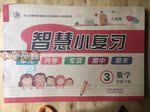题目内容
I’m lying on my back in my grandfather’s orchard (果园), looking up at the branches above me. It is one of the last days of summer. Already the days are shorter and the nights are cooler. Some kinds of apples are already ripe(成熟的). Others will be ready to pick soon. I think of my grandmother’s apple pie, and how I used to make it with her. She died last year, before the apple harvest, and I have not had her pie since then. I really miss her. I hear bees busily humming about, visiting the late summer flowers. The gentle hum of their wings nearly sends me to sleep.
The sky is as blue as my grandfather’s eyes. Above me, big white clouds ran across the sky like pieces of cotton blowing in the wind. School starts in another week, and time seems to have slowed down.
“Sophie!” calls my grandfather. “Is that you?” I stand up, take his hand, and tell him all about my day as we walk through the orchard. We talk about apples, and bees and Grandma. He tells me that he misses her too.
He puts his rough, brown farmer’s hand around my shoulder and pulls me close. “ You know, Sophie,” he says, “ I spent the morning in the attic (阁楼), and you’ll never guess what I found. It’s the recipe(烹饪法) for Grandma’s apple pie. I used to help her make it sometimes. I can’t do it all alone, but you used to help her too. Maybe between the two of us, we can work it out. Want to try?”
“ But it won’t be the same without Grandma,” I tell him.
“That’s true,” he says, “but nothing is the same without Grandma. Still, I don’t think that she would want us never to have another apple pie. What do you say?” I nod yes, and we walk towards home…toward an afternoon in the farmhouse kitchen, making Grandma’s famous apple pie.
小题1:We learn from the passage that Sophie .
小题2:Both Sophie and her grandfather used to ______.
小题3:The underlined part in the last paragraph shows .
小题4:Which of the following might be the best title for the passage?
The sky is as blue as my grandfather’s eyes. Above me, big white clouds ran across the sky like pieces of cotton blowing in the wind. School starts in another week, and time seems to have slowed down.
“Sophie!” calls my grandfather. “Is that you?” I stand up, take his hand, and tell him all about my day as we walk through the orchard. We talk about apples, and bees and Grandma. He tells me that he misses her too.
He puts his rough, brown farmer’s hand around my shoulder and pulls me close. “ You know, Sophie,” he says, “ I spent the morning in the attic (阁楼), and you’ll never guess what I found. It’s the recipe(烹饪法) for Grandma’s apple pie. I used to help her make it sometimes. I can’t do it all alone, but you used to help her too. Maybe between the two of us, we can work it out. Want to try?”
“ But it won’t be the same without Grandma,” I tell him.
“That’s true,” he says, “but nothing is the same without Grandma. Still, I don’t think that she would want us never to have another apple pie. What do you say?” I nod yes, and we walk towards home…toward an afternoon in the farmhouse kitchen, making Grandma’s famous apple pie.
小题1:We learn from the passage that Sophie .
| A.likes to watch clouds in the attic |
| B.comes to the orchard after school |
| C.enjoys Grandma’s apple pie very much |
| D.picks many apples in the orchard |
| A.help Grandma make apple pies |
| B.spend summer afternoons in the orchard |
| C.enjoy fresh fruit in the farmhouse kitchen |
| D.walk alone among the apple trees |
| A.how much Sophie’s grandmother loved Sophie |
| B.how much Sophie’s grandfather likes apple pies |
| C.how much Sophie loves her grandfather’s orchard |
| D.how much Sophie’s grandfather misses Grandma |
| A.My grandfather’s orchard | B.My grandmother’s apple pie |
| C.A morning in the attic | D.The last days of summer |
小题1:C
小题2:A
小题3:D
小题4:B
小题1:根据文章内容. Some kinds of apples are already ripe(成熟的). Others will be ready to pick soon. I think of my grandmother’s apple pie, and how I used to make it with her.可知答案为C
小题2:根据文章内容Sophie!” calls my grandfather. “Is that you?” I stand up, take his hand, and tell him all about my day as we walk through the orchard. We talk about apples, and bees and Grandma. He tells me that he misses her too.可知答案为A
小题3:根据文章内容大意可知答案为D
小题4:根据文章内容可知答案为B

练习册系列答案
 智慧小复习系列答案
智慧小复习系列答案
相关题目
